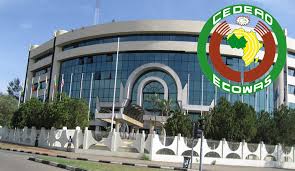Diplomatic Shuttles Begins: Search for Common Ground as AES Countries Exit ECOWAS Commission.
By Raymond Enoch
The withdrawal of Burkina Faso, Mali, and Niger—collectively forming the Alliance of Sahel States (AES)—from the Economic Community of West African States (ECOWAS) has set off a flurry of diplomatic activity.

As negotiations begin to manage the fallout, key stakeholders are working to navigate the complex implications of this historic split, with particular focus on the fate of the 135 staff members from AES countries currently employed within the ECOWAS Commission. The Ghanaian President, Former Nigeriaan Military Head of States General Yakubu Gowon, President Olusegun Obasanjo and several others have expressed deep concerns over the ripples and up to ensure balanced diplomatic resolutions.
The decision of the AES nations to exit ECOWAS came amid growing tensions over alleged governance, security, and economic cooperation.AES said to be frustrated with ECOWAS policies, particularly sanctions imposed after military takeovers in their countries, the AES bloc has chosen to chart its own course, raising concerns about the future of regional cooperation.

Diplomatic sources available to Paradigm News confirm that intense negotiations are now underway to address key concerns, including trade agreements, freedom of movement, and institutional continuity. At the heart of these discussions is the pressing issue of the AES nationals employed within ECOWAS institutions, whose future now hangs in the balance.
One of the most immediate concerns following the AES withdrawal is the status of the 135 staff members from Mali, Burkina Faso, and Niger who work within the ECOWAS Commission. These employees, who serve in various departments, now face uncertainty regarding their contracts, benefits, and continued employment within the regional body.
Legal experts are exploring whether ECOWAS labor regulations allow for their continued tenure despite their countries’ exit. However, political analysts argue that maintaining their roles within ECOWAS may prove challenging, given the bloc’s requirement that employees represent member states. If dismissed, questions arise about severance packages, legal protections, and potential reintegration into the newly formed AES structures.
Negotiation Interests: Seeking Middle Ground
ECOWAS has formed a high-level committee to engage with AES representatives and ensure a smooth transition. Diplomatic sources indicate that talks are centered on.
Despite their departure, the AES countries remain economically intertwined with ECOWAS states. Negotiators are exploring mechanisms that could allow trade and free movement agreements to continue in some form.
Given the ongoing fight against terrorism and instability in the Sahel, discussions include potential frameworks for continued security cooperation, even if the countries are no longer ECOWAS members.
The fate of ECOWAS structures, including courts, development projects, and financial obligations of departing members, is under review. This also includes how the withdrawal will affect community funding and shared projects.
The ECOWAS committee overseeing the negotiations faces a delicate balancing act. On one hand, the regional body is keen to uphold its credibility and unity. On the other, it must avoid a complete breakdown in relations with the AES countries, as their departure already weakens the bloc’s regional standing.
Some experts suggest that ECOWAS may propose an “associate membership” model, allowing AES nations to maintain certain economic and diplomatic links while operating outside the formal ECOWAS framework. This could provide a compromise that prevents a full rupture.
As diplomatic shuttles continue between key West African capitals, the outcome of these negotiations will shape the region’s political and economic landscape for years to come. While the AES countries are firm in their decision to exit, the possibility of maintaining cooperative ties remains open. The fate of ECOWAS staff members, regional agreements, and security cooperation all hang in the balance as leaders search for a common ground in a rapidly evolving geopolitical reality.
Paradigm News notes that for now, all eyes remain on the negotiation table, where the future of West African integration is being redrawn.







